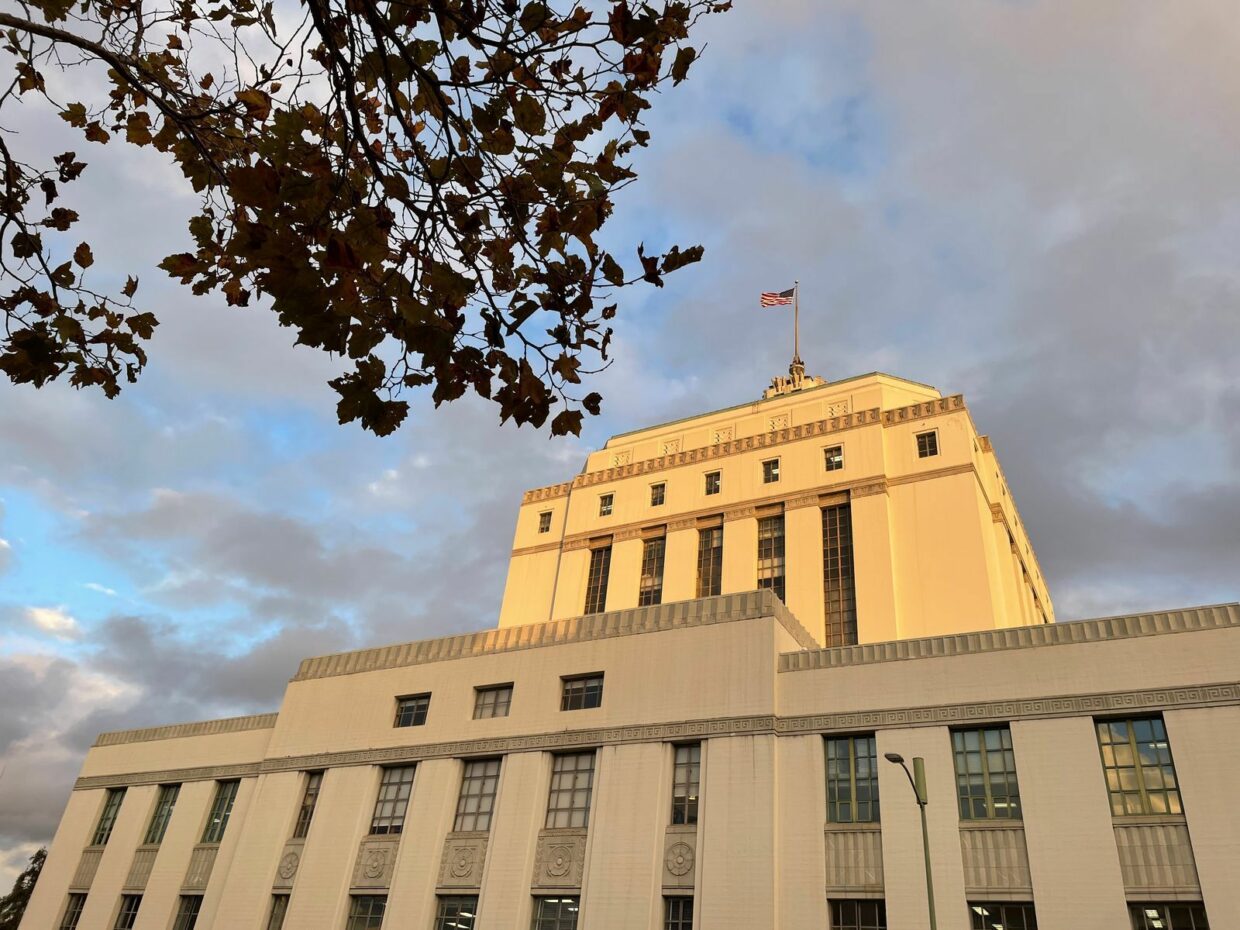
A huge beef is brewing across the Bay Bridge between Alameda County’s new District Attorney, Pamela Price, and Judge Mark McCannon. The backstory involves a plea agreement reached in the case of Delonzo Logwood, who is charged with a triple homicide. Looking at an exposure of 75-to-life, the proposed plea agreement would drop two of the murder charges and consist of only 15 years for the third.
Judge McCannon reportedly balked at the plea deal, saying that he has had sleepless nights over the triple murder case, and that he could not hand out a sentence that was not just and deserving. The judge also scolded Logwood from the bench, saying, “[y]ou can’t think an apology will make this all better. . . What are you sorry for if you didn’t do anything?”
In response, both the prosecution and the defense moved for a recusal, and the judge refused to recuse himself. Now, D.A. Price, elected on a progressive platform, is waging war against the judge, trying to get him disqualified from any case handled by the D.A.’s office. Here’s a video in which she explains why:
The basic doctrine that addresses the situation comes from a D.C. Circuit Court case called U.S. v. Ammidown. The defendant arranged to have his wife murdered by a much younger man, Lee. At the last minute, he changed his mind, and wanted Lee to “only” kidnap her and extort money from her. But Lee did end up killing Mrs. Ammidown, and both men were caught and prosecuted. In return for Ammidown’s cooperation in testifying against Lee–a much younger and more dangerous man–the D.A. agreed to downgrade the charges to second-degree murder; the judge, however, was not on board, and said that the charges were a “tap on the wrist.” He convicted Ammidown of first-degree murder and sentenced him to life.
On appeal to the D.C. Circuit Court, the sentence was vacated and the judge was ordered to accept Ammidown’s original guilty plea. Judge Leventhal, who wrote the opinion, explained that judges are not bound by plea agreements and are allowed to “blow up” these deals. But this course of action must be reserved for rare occasions, and follow these guidelines:
First, the trial judge must provide a reasoned exercise of discretion in order to justify a departure from the course agreed on by the prosecution and defense. This is not a matter of absolute judicial prerogative. The authority has been granted to the judge to assure protection of the public interest, and this in turn involves one or more of the following components: (a) fairness to the defense, such as protection against harassment; (b) fairness to the prosecution interest, as in avoiding a disposition that does not serve due and legitimate prosecutorial interests; (c) protection of the sentencing authority reserved to the judge. The judge’s statement or opinion must identify the particular interest that leads him to require an unwilling defendant and prosecution to go to trial.
We now turn to the content of these components, and begin by passing any discussion of fairness to the defense, since it is not directly involved in the case at bar and it has already been identified in the precedents referred to earlier in this opinion. As to fairness to the prosecution interest, here we have a matter in which the primary responsibility, obviously, is that of the prosecuting attorney. The District Court cannot disapprove of his action on the ground of incompatibility with prosecutive responsibility unless the judge is in effect ruling that the prosecutor has abused his discretion. The requirement of judicial approval entitles the judge to obtain and evaluate the prosecutor’s reasons. That much, indeed, was proposed by the Advisory Committee, and the Supreme Court’s amendment obviously did not curtail the proposed authority of the judge. The judge may withhold approval if he finds that the prosecutor has failed to give consideration to factors that must be given consideration in the public interest, factors such as the deterrent aspects of the criminal law. However, trial judges are not free to withhold approval of guilty pleas on this basis merely because their conception of the public interest differs from that of the prosecuting attorney. The question is not what the judge would do if he were the prosecuting attorney, but whether he can say that the action of the prosecuting attorney is such a departure from sound prosecutorial principle as to mark it an abuse of prosecutorial discretion.
In like vein, we note that a judge is free to condemn the prosecutor’s agreement as a trespass on judicial authority only in a blatant and extreme case. In ordinary circumstances, the change in grading of an offense presents no question of the kind of action that is reserved for the judiciary.
U.S. v. Ammidown (1973), Op. Ct. by Judge Leventhal.
The takeaway for judges is a strong discouragement from blowing up deals unless they have an excellent reason. Any time a judge flouts a plea deal, the sentence is more vulnerable on appeal, so most judges don’t do it lightly. Judges usually respect plea deals because they have long-standing working relationships with the DA’s office and they have to trust their judgment. Moreover, blowing up a deal is such an unusual occurrence that judges have to explain themselves in a lot of detail (to legitimize the sentence and protect it from appellate reversal). This, of course, requires going into why the judge does not trust the D.A. to have taken the public interest sufficiently into consideration. In doing so, judges sometimes use strong words, but per Ammidown, speaking too strongly is also a problem.
Does blowing up one deal amount to judicial prejudice of the sort that can be said to sour the judge’s relationship with the entire D.A.’s office? In other words, will D.A. Price prevail in trying to get Judge McCannon disqualified from all cases her office handles? That seems a bit of a stretch, and it speaks volumes about the underlying political issues surrounding her election and what her office stands for. Newspapers have reported that the office is somewhat is turmoil, with people quitting and openly challenging the office’s values and priorities. This is a pretty natural consequence of the office changing political direction with the election of a progressive leader–we saw this during Chesa Boudin’s tenure in San Francisco, also. As we see in the video, D.A. Price disputes these former prosecutors’ allegations.
The usual way of addressing possible judicial prejudice is by asking for recusals on a case-by-case basis. There are some situations where a more general disqualification is appropriate: consider, for example, a situation where the judge marries the D.A., in which case they really should not handle cases that the office brings (and best for everyone if the two work in different counties altogether.) This is quite unusual, and I wait to see how it unfolds. Regardless of whether Price will be successful in her bid, starting a massive feud with a judge on YouTube does not portend well for Alameda County.




No comment yet, add your voice below!